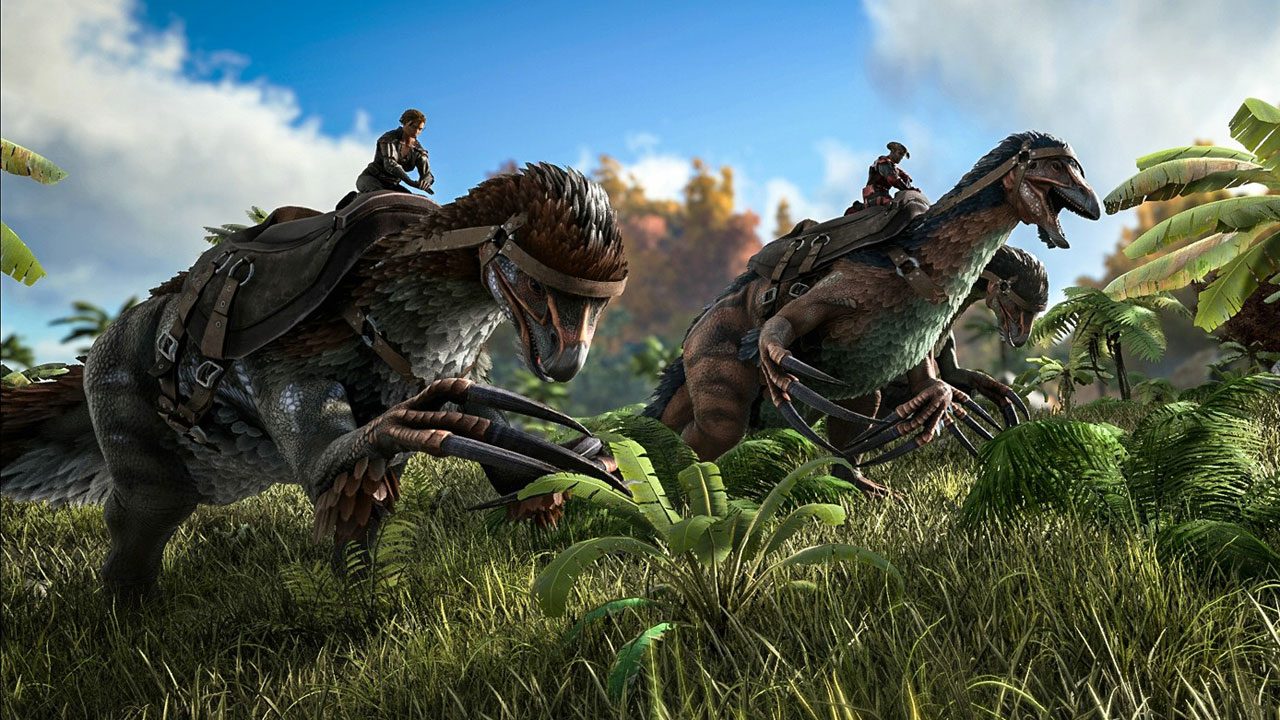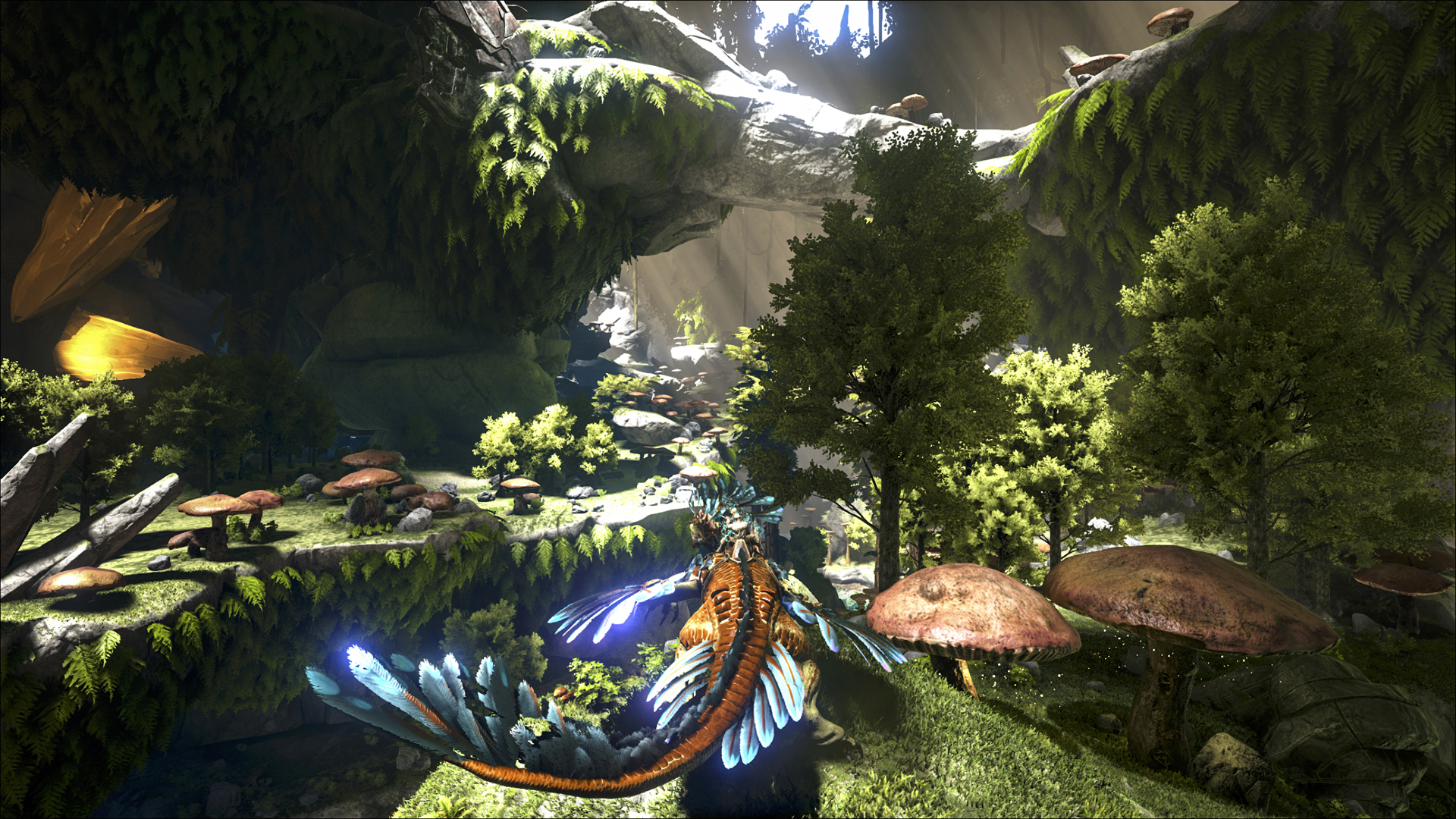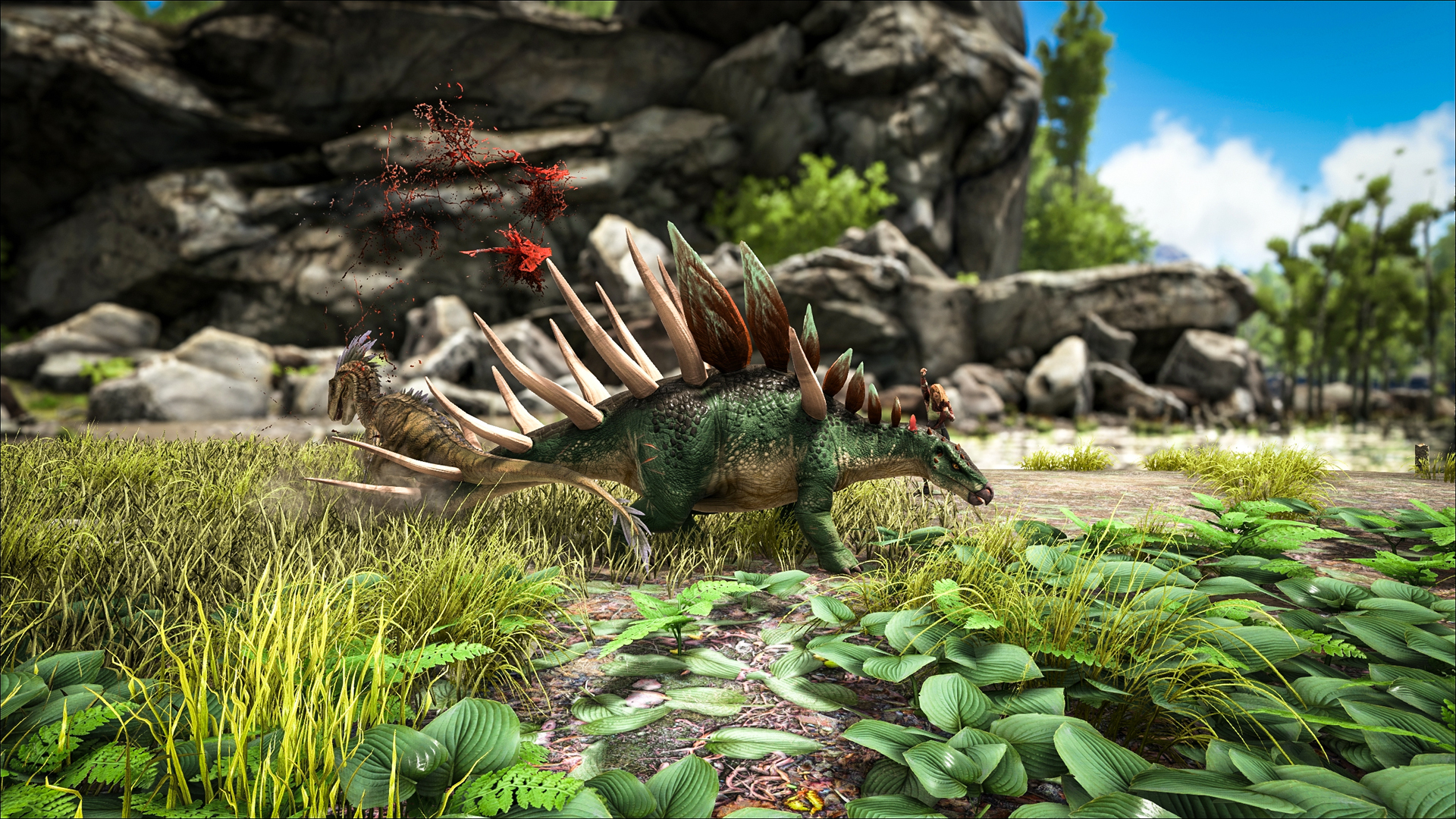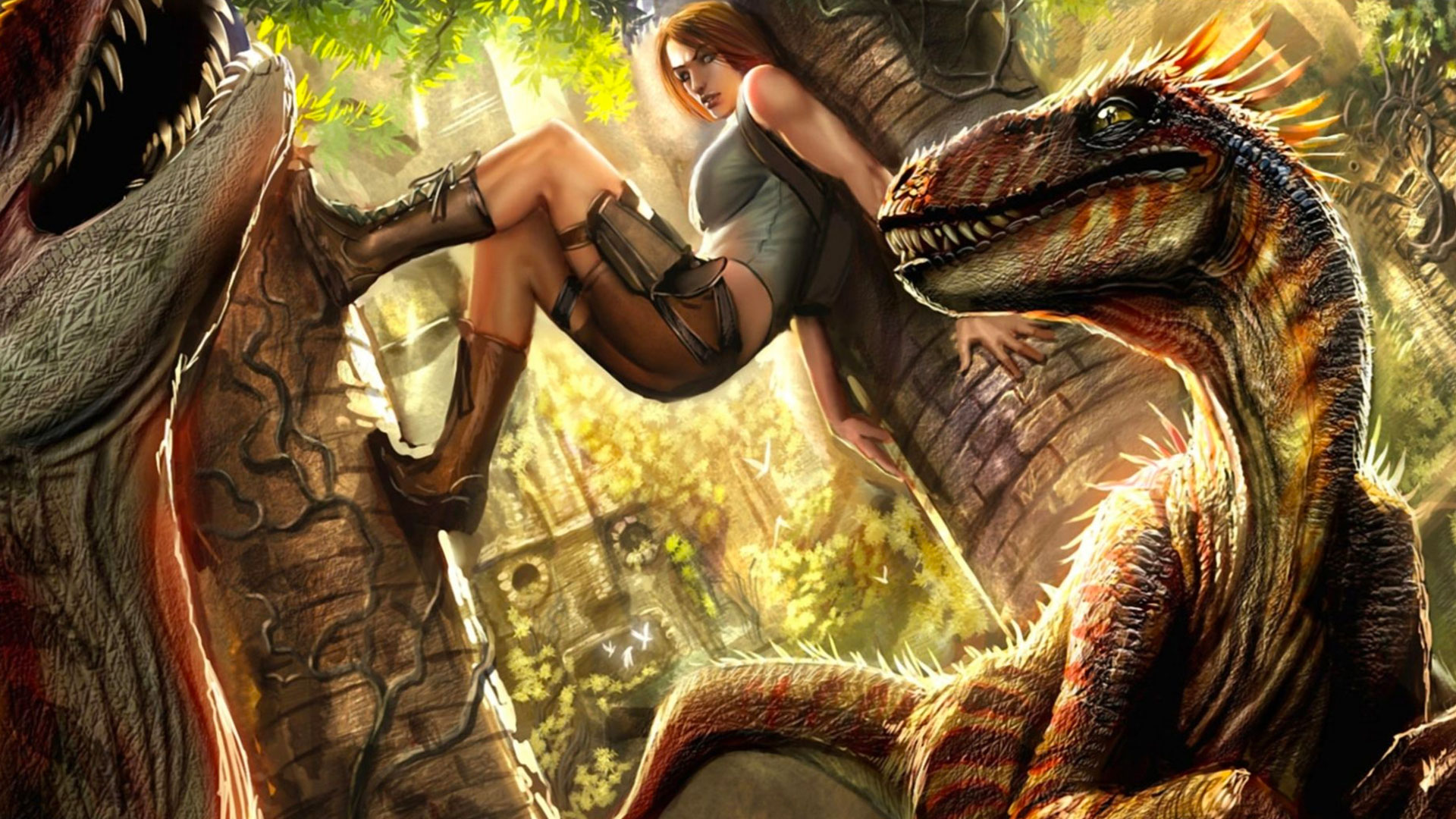Ark: Survival Evolved studio CEO on Early Access, reviews and punching trees
Spoiler: he's punched a tree in real life before.

Yesterday I had the chance to speak with Doug Kennedy, CEO of Studio Wildcard, the company responsible for Ark: Survival Evolved. Needless to say, that game’s heady brew of dinosaur riding and tree punching has been a remarkable success–and ranks among the few survival games to leave its stint in Early Access.
But it hasn’t been without controversy. The release of Scorched Earth, Ark’s first major expansion before the game had launched proper, was a sticking point among its playerbase, as were other factors such as the game’s price increase when it finally hit 1.0. But generally speaking the game is being played and enjoyed–it’s sold a whopping 11 million units across all platforms, which can hardly be attributed to player ambivalence.
On Early Access
With all that in mind, would Studio Wildcard use Early Access again? With the notable exception of Playerunknown’s Battlegrounds, Early Access projects have struggled to meet the profile and success of titles like Ark–as well as others such as DayZ and Rust, which remain unfinished. The initiative has an undeniable stigma in 2017, and yet Kennedy’s answer to whether the studio would take that route again is a resounding yes.
“We will absolutely 100% use Early Access for our next project,” Kennedy said. “I enjoy it because it allows us to onboard our hardest of hardcore fans and stay in tune with them, and to give them a voice inside a game that’s being developed.

“I’ve seen a lot of games go into Early Access and fail miserably, for a variety of reasons,” Kennedy continued. “We came up with an exceptional concept, we developed a great game. We listened to our fans: there isn’t anyone in the industry better than Jesse Rapczak and Jeremy Stieglitz in terms of staying in front of the fans, talking to them, developer diaries, developer logs, listening. We also manage it from a standpoint of: we have numerous community managers, and we listen to everything. There isn’t a single thread that we aren’t paying attention to. It doesn’t mean we respond to everyone, but we listen to them all, and when we roll out a new expansion pack or update or anything that’s a major change in the game, our community guys are tireless, they stay up days in a row: is there a bug? Is there an issue? What needs to be fixed?”
Kennedy says studios hoping to simply make a buck off an unfinished game shouldn’t go near Early Access. “It’s like having the world as a testing facility, but the problem is–and this is just my personal take–that a lot of people look at it as a means to get money early, and sell a game while they continue to develop. If you’re not listening to the community, if you’re not updating them with what’s going on and what the vision is, where you’re taking it, whatever the vision is, if you’re not doing that there’s no purpose for going into Early Access. Developers really should think long and hard about whether that’s the right place for their game to be. If they’re only going there to raise money early in development, it’s the wrong reason to be there.”
On reviews
I mentioned to Kennedy that Ark currently boasts a “mixed” status on Steam, both for most recent and older reviews. That’s not a particularly good look to newcomers of the game, though it’s a much better look than DayZ or The Forest in terms of games with very vocal playerbases. Do players of Early Access games feel more ownership of a title, and are thus more likely to be critical?
Keep up to date with the most important stories and the best deals, as picked by the PC Gamer team.

“They do feel more ownership,” Kennedy said. “It’s a balancing act. If you’re new to Early Access and you come on to play a game, and you’ve paid $29 for a title, and you’re expecting a polished game, you’re not going to give it a great review.
“I’d love to see a line in the sand drawn: I’d love for it to be: here are all the Early Access reviews and here are all the post-launch reviews. I’d like to see some kind of equation that says, alright, now come review our game. We’re going to let you review it twice: once before it ships and once as the finished product. Because really, I’ll use a car example. Come and review our car. People love the body style but they get in and there’s no engine. So how do you want to rate the car? That’s kind of an extreme but that’s the mentality of it. No one knew how big the car was going to be when we were building the game.
“But it’s the first game I’ve ever worked on that I haven’t worried too much about metacritic and scoring,” he continued. “Because I knew that we were catching some flack about things like bugs – but we didn’t put it through playtesting, we put it out there and then we fixed things. That’s what Early Access is.”
On Survival of the Fittest
Given the overwhelming success of Playerunknown’s Battlegrounds–also an Early Access game–I asked Kennedy whether the studio had any further plans for the Ark equivalent, Survival of the Fittest. The short answer? It’s a “strong possibility”.
“Survival of the Fittest was a great idea, and I can tell you that we will continue to do something with it,” Kennedy said. “I look at it in this manner: it is not a trivial job to just dive in and say ‘hey we’re going to do a competitive battle mode’. We built it, we put it in the marketplace, and I keep talking about consumer quality and making sure you’re following through. It’s great to play it, but if we’re going to run tournaments, with competitive modes and cash prizes etc, we have got to be fully buttoned up.

“We had to make a decision when we put that out there: do we continue to try to run the tournaments and dedicate a ton of development resource to support this or do we develop the [main] game, release an expansion and ship a complete product? When we put SotF back into the marketplace, whenever we do that we should put it in the marketplace so that it’s spectacular and it attracts users and we have a development team to support it. We’ll need a marketing campaign, a tournament team, and everything else necessary for it to be a Triple A battle mode game. We learned a lot by putting it out the way we did. Mainly what we learned was that we have to do it with 100% commitment and do it right.”
On the future
As for the future of Ark, the studio’s goal was to release three major expansions for the main game (the second, Aberration, releases next month), but more may follow depending on player engagement and demand. In addition to Ark Park and Pix Ark, the studio has other plans too: unannounced plans. “We’re very concerned about quality, experience, and making sure we’re not just tossing stuff out there.”
On punching trees
Finally, I asked Kennedy the question I have always wanted to ask a spokesperson for Studio Wildcard (or indeed, any other survival game): have you punched a tree before? Alarmingly, the answer was “yes”.
“In real life? Actually I have,” Kennedy said. “It’s not one of my prouder moments, but as anyone who reads this interview will now know, I have actually punched a tree before. It’s a long story. I’m not taking any credit for the tree punching in the game, but it did hit close to home when I first did it in the game. [laughs]”

Shaun Prescott is the Australian editor of PC Gamer. With over ten years experience covering the games industry, his work has appeared on GamesRadar+, TechRadar, The Guardian, PLAY Magazine, the Sydney Morning Herald, and more. Specific interests include indie games, obscure Metroidvanias, speedrunning, experimental games and FPSs. He thinks Lulu by Metallica and Lou Reed is an all-time classic that will receive its due critical reappraisal one day.

